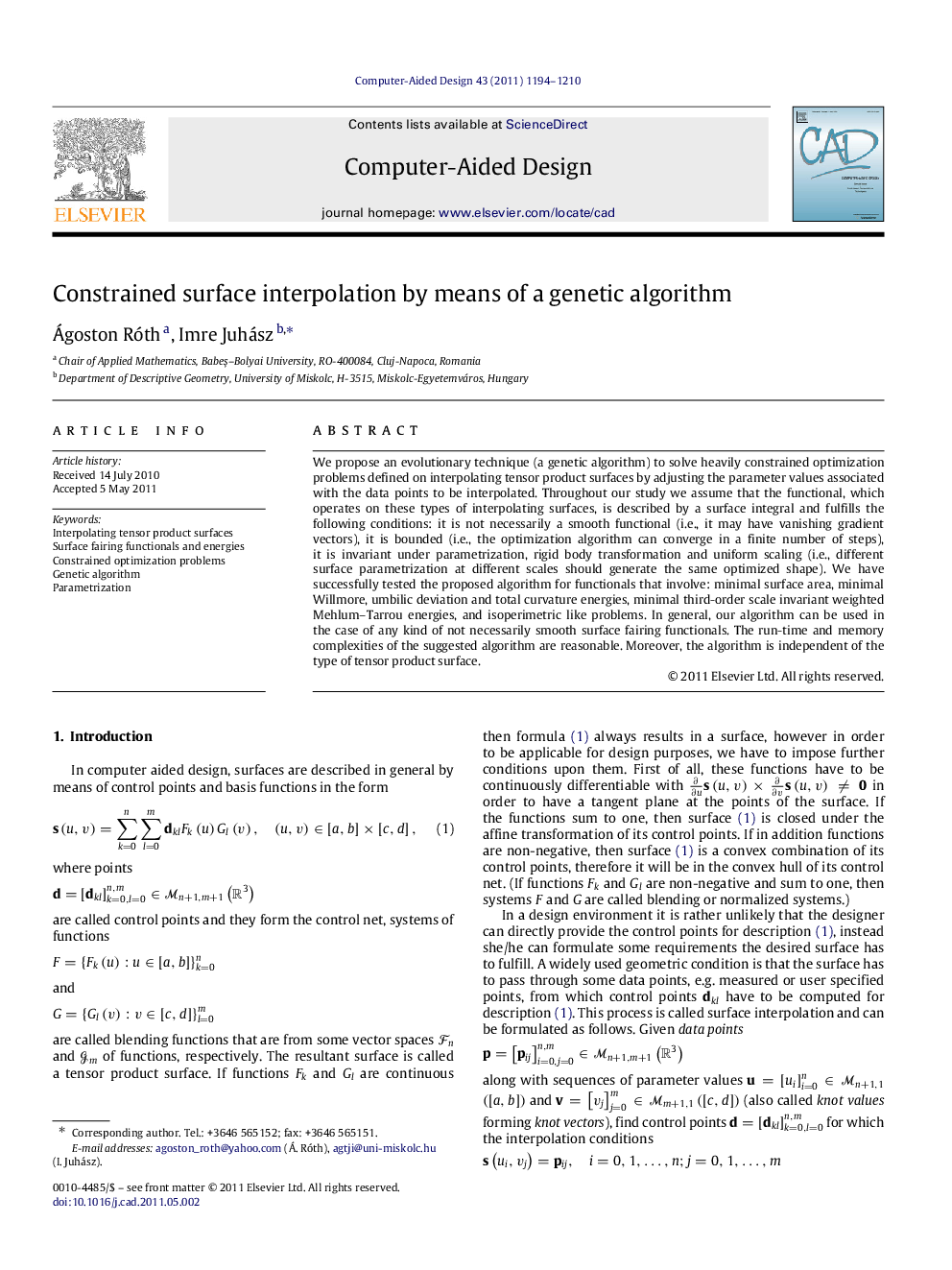| Article ID | Journal | Published Year | Pages | File Type |
|---|---|---|---|---|
| 439681 | Computer-Aided Design | 2011 | 17 Pages |
We propose an evolutionary technique (a genetic algorithm) to solve heavily constrained optimization problems defined on interpolating tensor product surfaces by adjusting the parameter values associated with the data points to be interpolated. Throughout our study we assume that the functional, which operates on these types of interpolating surfaces, is described by a surface integral and fulfills the following conditions: it is not necessarily a smooth functional (i.e., it may have vanishing gradient vectors), it is bounded (i.e., the optimization algorithm can converge in a finite number of steps), it is invariant under parametrization, rigid body transformation and uniform scaling (i.e., different surface parametrization at different scales should generate the same optimized shape). We have successfully tested the proposed algorithm for functionals that involve: minimal surface area, minimal Willmore, umbilic deviation and total curvature energies, minimal third-order scale invariant weighted Mehlum–Tarrou energies, and isoperimetric like problems. In general, our algorithm can be used in the case of any kind of not necessarily smooth surface fairing functionals. The run-time and memory complexities of the suggested algorithm are reasonable. Moreover, the algorithm is independent of the type of tensor product surface.
Graphical abstractFigure optionsDownload full-size imageDownload as PowerPoint slideHighlights► Evolutionary technique for fairing constrained interpolating tensor product surfaces is proposed. ► The method also works in the case of nonlinear and non-smooth surface fairing functionals. ► The algorithm is independent of the type of the tensor product surface. ► Test results for several first-, second- and third-order surface fairing functionals are presented.
